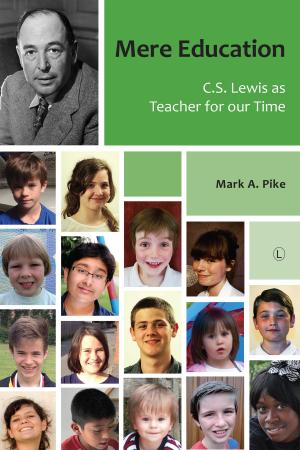| Author: | Geoffrey Shoesmith | ISBN: | 9780718842093 |
| Publisher: | The Lutterworth Press | Publication: | November 27, 2014 |
| Imprint: | The Lutterworth Press | Language: | English |
| Author: | Geoffrey Shoesmith |
| ISBN: | 9780718842093 |
| Publisher: | The Lutterworth Press |
| Publication: | November 27, 2014 |
| Imprint: | The Lutterworth Press |
| Language: | English |
This book provides simple, clear, in-depth explanations of all the topics in the AQA GCSE specification 4180 syllabus but it will prove invaluable to students at many levels on many courses and to the independent reader. It can be used as a stand-alone home study course, as a classroom text, as a reference text or just for pleasure for those who love to think about what makes people tick.
Psychology describes up-to-date research as well as some classic psychology studies and even debunks one or two psychology research myths. It leads the reader through all the topics in the syllabus as a teacher would in a classroom setting. Topics are presented as a series of lessons followed by "Check Your Understanding" sections, which are designed to help you check and retain the information in each lesson. An assessment record provided at the end of the book will help you keep track of your progress. Lessons are interactive with many opportunities to jot down your thoughts and reactions, reflect on how a topic relates to your own experience, discuss with other people and become more involved with the material presented.
Students can pinpoint the topics they are studying for GCSE by using the table mapping the GCSE specification against the lessons in this book. For those studying outside formal classrooms there are guidelines about how best to approach your studies.
The book assumes that readers have no previous knowledge of psychology and among the topics covered are:
· Conformity and Obedience - would you press a button to kill someone just because you are told to do so? Many people would, it seems.
· Sex and Gender - do girls and boys, men and women behave so differently? If so, why?
· Memory - how does memory work and how accurate is it?
· Non-Verbal Communication - do we reveal our true feelings in our body language?
· Development of Personality - what exactly is Anti-Social Personality Disorder?
· Prejudice and Discrimination - are we bound to discriminate against people who are unlike us?
· Learning - how to remove your fear of spiders/snakes/flying/open spaces or anything else using the principles of learning.
· Aggression - is aggression born into us? Is it in our hormones? Or do we learn to fight?
· Research Methods and the Ethics of Psychology - psychology is based on evidence, not just ideas. But what type of study constitutes good evidence and how should we treat the people in our studies?
This book provides simple, clear, in-depth explanations of all the topics in the AQA GCSE specification 4180 syllabus but it will prove invaluable to students at many levels on many courses and to the independent reader. It can be used as a stand-alone home study course, as a classroom text, as a reference text or just for pleasure for those who love to think about what makes people tick.
Psychology describes up-to-date research as well as some classic psychology studies and even debunks one or two psychology research myths. It leads the reader through all the topics in the syllabus as a teacher would in a classroom setting. Topics are presented as a series of lessons followed by "Check Your Understanding" sections, which are designed to help you check and retain the information in each lesson. An assessment record provided at the end of the book will help you keep track of your progress. Lessons are interactive with many opportunities to jot down your thoughts and reactions, reflect on how a topic relates to your own experience, discuss with other people and become more involved with the material presented.
Students can pinpoint the topics they are studying for GCSE by using the table mapping the GCSE specification against the lessons in this book. For those studying outside formal classrooms there are guidelines about how best to approach your studies.
The book assumes that readers have no previous knowledge of psychology and among the topics covered are:
· Conformity and Obedience - would you press a button to kill someone just because you are told to do so? Many people would, it seems.
· Sex and Gender - do girls and boys, men and women behave so differently? If so, why?
· Memory - how does memory work and how accurate is it?
· Non-Verbal Communication - do we reveal our true feelings in our body language?
· Development of Personality - what exactly is Anti-Social Personality Disorder?
· Prejudice and Discrimination - are we bound to discriminate against people who are unlike us?
· Learning - how to remove your fear of spiders/snakes/flying/open spaces or anything else using the principles of learning.
· Aggression - is aggression born into us? Is it in our hormones? Or do we learn to fight?
· Research Methods and the Ethics of Psychology - psychology is based on evidence, not just ideas. But what type of study constitutes good evidence and how should we treat the people in our studies?















